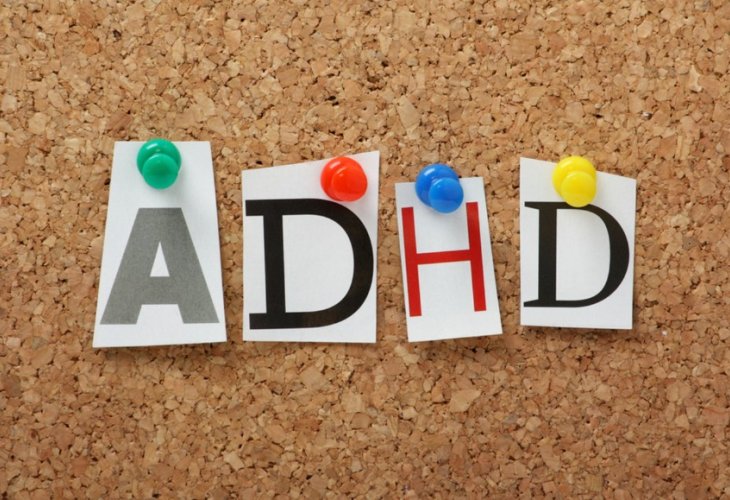Navigating the Chaos: Understanding ADHD in Teens and Their Parents
For those with ADHD, there's a developmental gap in different systems. The intellectual age is about a third greater than the chronological age (a 10-year-old with insights of a 13-year-old), and the emotional age is a third lower (a 10-year-old behaving like a 7-year-old). This gap is the root of frustration for parents and teachers.
 (Photo: shutterstock)
(Photo: shutterstock)A slightly empty stare, anger to the fingertips, and a rebellious purse of the lips. Teenagers.
Honestly, when it comes to ADHD, you don't really have to wait until the teen years to experience explosions. But adolescence naturally amplifies everything. And when it comes to a disorder whose definition is "normal traits that appear in an extreme form," everything becomes more chaotic and complex.
To understand this phenomenon, let's start with common teenage characteristics. The beginning of adolescence is marked by hormonal and physical changes (in both boys and girls). This experience in itself makes teens more sensitive and prone to outbursts and even aggression during certain periods. At the same time, there is an internal process. Teenagers reprocess everything they once knew. They develop an independent identity and search for their place in the adult world and society. We mentioned society? It's perhaps the most important area for a teen. The desire to belong and find a peer group is incredibly strong and often takes precedence over any other consideration.
Communication at these ages can be so complex that many parents fantasize about locking their child in a room at age 12 and opening it again on their 20th birthday. But the truth is, this process of questioning and internal searching is crucially significant for who our teen will grow up to be. Testing boundaries is a real learning and developmental process. However, it can be exceptionally difficult and frustrating for the teen experiencing it and enormously trying for their parents.
So, is it tough to be a parent to teens?And we haven’t even touched on ADHD.
Let's start with the basic definition: ADHD is characterized by normal traits appearing in an extreme form. It's important to note that the disorder is divided into different subtypes, and no two people with ADHD are alike. If you're a parent or teacher of a teen with ADHD, you likely recognize some of the symptoms mentioned. The severity varies from person to person, as does the way things are manifested—so beware of hasty diagnoses. Quick diagnoses are the enemies of all disorders, leading to either over-diagnosis or inaccuracies. When necessary, it's important to pursue comprehensive, professional evaluation.
What happens to teenagers with ADHD?
Beyond the hormonal and internal development mentioned earlier, various ADHD-related features will manifest. Let's start with the age gap. For teens without ADHD, there is a balance in development between the emotional, intellectual (understanding), and chronological (real) age. Sometimes the maturation process is faster, sometimes slower. From childhood, those with attention disorders already have a gap. The intellectual age is about a third greater than the chronological age (a 10-year-old with insights of a 13-year-old), while the emotional age is about a third lower (a 10-year-old behaving like a 7-year-old). This gap is a primary frustration for parents and teachers, sitting at the root of the conflict and misunderstanding people with ADHD have of themselves. As we've already mentioned—more than society fails to understand people with ADHD, they don't understand themselves.
Another part is the separation process. As part of any healthy maturation process, there is a stage of separation and independent formation from the parents and primary environment. For teens without ADHD, this process manifests as distancing, a desire for privacy, and lack of sharing. This experience, even when balanced, is often very difficult for parents and leads to conflicts. In teens with ADHD, there is an intensification. Because kids and teens with ADHD tend to be dependent, they have real difficulty separating in a balanced way. Their separation will be more of a rebellious withdrawal. They will confront endlessly, behave provocatively, and struggle to develop real independence. (Notice that alongside the grumpy attitude and rebelliousness, there are childish gestures arising from dependency and a difficulty to let go and build an independent personality).
 (צילום: shutterstock)
(צילום: shutterstock)It's important to point out that difficulty adhering to external authority is part of the difficulty people with ADHD have in complying with demands that aren’t internal. Let’s explain: there's a misconception about attention deficit disorder—there's a tendency to think that people with ADHD have no concentration abilities at all in any field. The truth is, people with ADHD are indeed capable of concentration, even "super focus," in areas that interest them, including internal demands (whatever they feel like doing or have a personal interest in).
The significant difficulty in focusing attention is when it involves uninteresting activities (homework in a disliked subject) or external demands (anything required by an external authority—parents, teachers, siblings). It's important to understand that the lack of motivation in these areas, perceived as rebellion or, worse, "deliberate disobedience,"
stems from a real difficulty related to ADHD and/or one of the disorders associated with it—such as lack of learning skills or a learning disability. It's important to note that these are not excuses to give up, but reasons to investigate the source of the difficulty and learn the right and effective ways to achieve functional success.
The last aspect we'll touch on concerning teenagers is self-image and its implications on the social search. We've already mentioned that society plays a crucial role in teenagers' lives. They are willing to do almost anything to secure their place.
The lack of understanding people with ADHD have of themselves, alongside the tough feedback they constantly receive from their surroundings from childhood, creates teens with low self-esteem and uncertainty about their social appearance. For this reason, they will try to please at any cost, whether by behaving submissively to certain social factors or through control and manipulation of others to secure their place. In other cases, they may face rejection and lack the courage to initiate social interactions at all. The result in all cases is unhealthy communication, frustration, sometimes depression, and primarily very low motivation.
Coaching Teens, and Parent Coaching for Teens with ADHD
To understand the significance and power of coaching for teens with ADHD, and coaching for their parents, let's take a look at each of these processes. It's important to note that coaching for attention deficit disorder is relatively short-term and specially tailored for those with the disorder. It is dynamic and tends to be concise with practical, defined goals.
The difficulty of parenting teens with attention disorders often creates confusion around the role of parenting. Teens with ADHD have difficulties with responsibility across various areas. They tend to procrastinate tasks, rely blindly on the next moment, blame others for their failures and frustrations, and generally disengage from responsibility almost entirely. Parents tend to lean into one of two extremes.
On one end, we see a frustrated parent who becomes the “prophet of doom” for their child. "You'll be late again," "It was expected you'd get in trouble," "What did you expect to happen?," "I told you so," and these are the relatively mild statements. In tougher moments, there are phrases like: "What will become of you?," "How will a guy like you succeed in yeshiva/the army/work?!".
On the other hand, there's the equally frustrated parent who attempts almost forcibly to “fix” the situation for their child. They remind them numerous times, pack their bag before every outing, and ensure they've not forgotten food/books/homework/study materials/items for social activities, protecting them against the system. Overall, this parent tries with all their might to put their teen on a balanced track of action, even at the cost of their own sanity and freedom.
In both cases, there's significant harm to the child. The “prophet of doom” parent often misinterprets the root of their child's behaviors, and their harsh or supposedly motivational words compound the difficulty, lowering self-esteem and reducing motivation. Such teens have a very high likelihood of entering a cycle of self-destruction.
On the other hand, the “fix-it” parent—this “fix-it” approach often stems from pity over the teen's struggles with various life tasks, attempting to handle things on their behalf. In practice, the teen experiences a total lack of trust in their ability (since everything is done for them) and zero opportunities for truly learning to take responsibility and develop an internal engine for effective handling.
In parental coaching, the first step is recognizing and identifying the specific coping patterns of the parents, where the focus is on communication that promotes responsibility without belittling (the first parent) or stifling development (the second parent). Parents are given tasks and close guidance on appropriate responses and stance against the teen. The goal is helping them learn that the true role of a parent is to serve as an anchor; to provide guidance while allowing the child to experience, question, and sometimes watch helplessly as they pay the price for poorly calculated choices, understanding this is the only path to learning how to lead a responsible adult life. Always encourage, too, even the smallest of progress.
A Peek into Teen Coaching
The most significant experience for teens with ADHD is all-out chaos.
The desire for instant resolutions to all difficulties, coupled with their lack of self-understanding, fuels impulsive behavior and utterly ineffective problem-solving. Such failures only contribute to their already low self-esteem and, for some, lead to deep self-loathing.
In coaching a teen, significant emphasis is placed on getting to know oneself. Understanding the source of various behaviors, recognizing the needs and different traits of attention deficit disorder as they manifest personally. At the same time, strengths are recognized, and weaknesses are defined. Understanding weak points and deterrents compared to strengths reduces self-anger and allows for a clear, more objective self-viewing, leading to an actual transformative process and gaining control over their life.
Avigail Fortuney and Eilat Vogbright - ADHD coaches and parent mentors for children and teens with ADHD, founders of the "Attention and Coaching" group. kesheveimun@gmail.com

